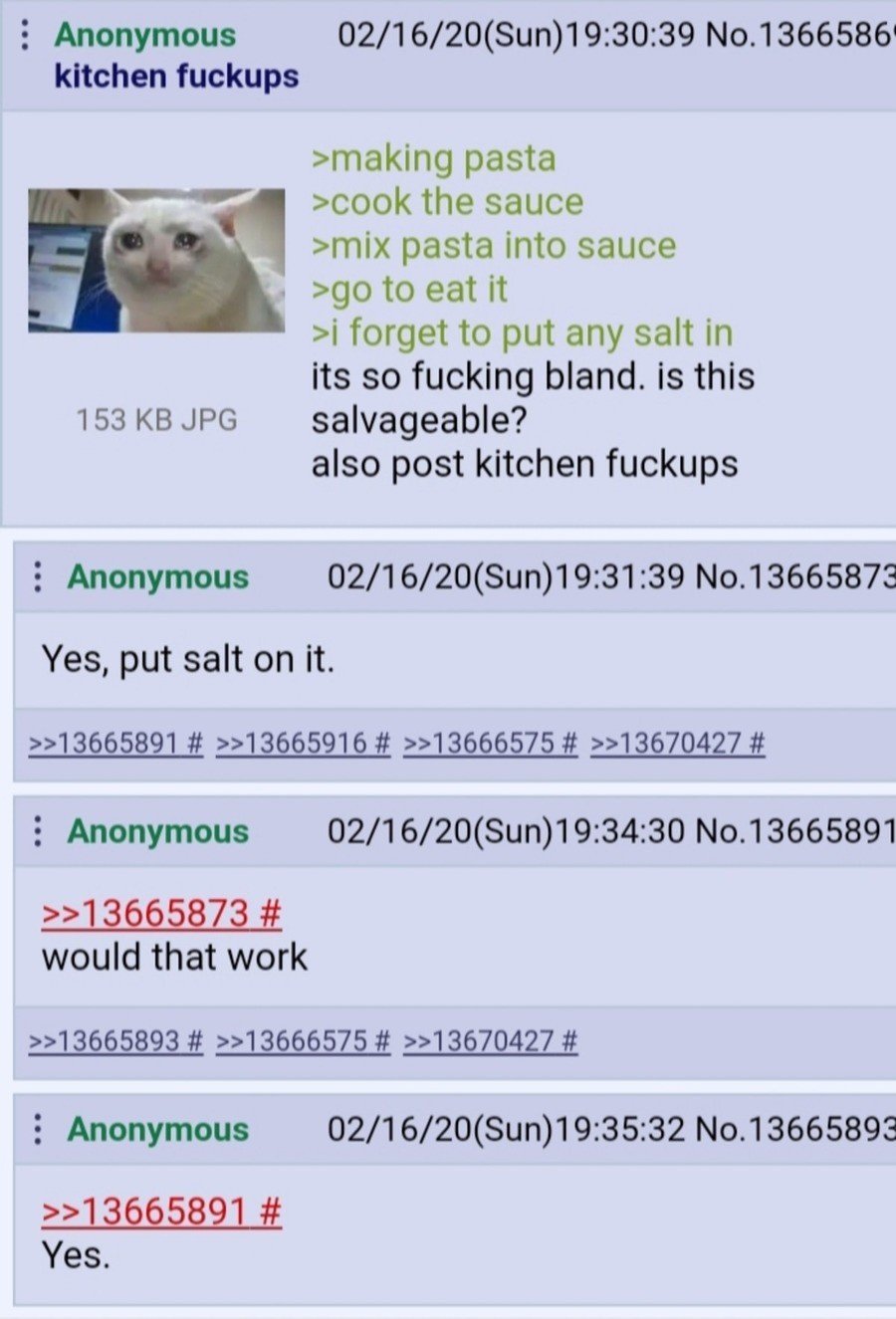Alternatively, instead of overloading on salt: for non-bland food:
-
Get local in-season produce. E.G. Fresh tomatoes vs canned or long distance imports is a night and day difference. Also can be cheaper and you also know that the money is staying local, not feeding some rich fuck's investments.
-
Mother. Fucking. GARLIC.
-
Optionally, find a good chili oil.

